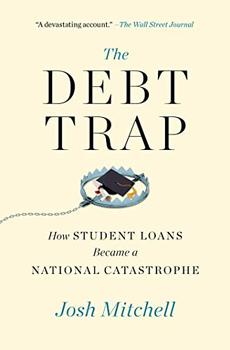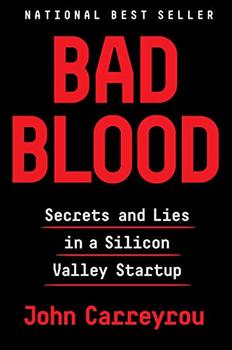Summary | Excerpt | Reviews | Beyond the book | Read-Alikes | Genres & Themes | Author Bio

The Secret History of Koch Industries and Corporate Power in America
by Christopher LeonardMany Americans first heard of Koch Industries (or "the Koch Brothers") during the 2016 presidential election cycle, when the organization became widely known as a huge financial backer of Republican Party candidates; few, though, have any idea just how massive the company is. In 2018, it employed approximately 120,000 in 60 countries and made a profit of $110 billion, making it the second largest privately-owned business in the world (after international food conglomerate, Cargill). Although originally an oil refinery company, today Koch Industries' subsidiaries produce goods that are used by most Americans on a daily basis, such as paper towels and toilet paper from manufacturer Georgia-Pacific or textiles such as Lycra, Cordura and Dacron from INVESTA. Until recently, the company was led by brothers Charles Koch, chairman of the board and chief executive officer, and David Koch, executive vice president; David died due to prostate cancer in August 2019, however, leaving Charles alone. In Kochland, investigative journalist Christopher Leonard offers an in-depth exploration of how CEO Charles Koch developed the enterprise from a mere 300-employee/$2.5 million venture when he joined the company in 1961 into one of the largest, wealthiest and most influential businesses on the planet.
More a biography of a business than an expose, Leonard's work doesn't focus much on Charles Koch after its initial chapters. Instead, the author uses some of the more pivotal decisions (both good and bad) that Koch Industries made as a whole to follow the company's history; laid out chronologically, each chapter takes an in-depth look at a specific event. He writes in one section, for example, about the decision to buy Pine Bend Refinery in 1969, a division that ultimately became one of Koch's most stable sources of income. Before it became financially lucrative for Koch Industries, however, the division almost sank when it was first acquired due to protest from Pine Bend's strong union over their new employer's strict workplace policies, a process the author covers in great detail. In a later chapter, he discusses the decision to buy animal feed maker Purina Mills in 1997 in an effort to gain a toe-hold into the agricultural business, which seemed like a good avenue for growth. In their haste to expand, Koch executives overlooked a major flaw in Purina's business plan, however, resulting in the loss of hundreds of millions of dollars and reshaping Koch Industries going forward to prevent such failures in the future.
One of the most remarkable aspects of Kochland is Leonard's ability to convey arcane industry concepts simply enough for those of us with no background in the subject to grasp. One particularly dense section deals with commodity trading (a complex subject in itself) of a newly-deregulated product called a megawatt-hour – a basic unit of power that could be bought and sold like an oil futures contract. The author clearly explains how in 2000-2002 Koch Industries took advantage of loopholes in government regulation to make obscene profits at the expense of taxpayers (one such transaction alone yielded $874,523 in profits). Leonard not only helps his readers grasp the complex concepts but also makes his explanation entertaining. Indeed, for such a massive tome (it's nearly 700 pages, including an abundance of endnotes), it moves along surprisingly well start to finish.
Some have accused Leonard's writing of liberal bias, but I didn't find it so; in fact, I was surprised at just how matter-of-fact his account ended up being. One of Koch's priorities was union-busting, for example, and while the author definitely shows how Koch's strategies negatively impacted workers, he doesn't condemn Koch's methods or highlight the long-term losses incurred by former employees; he merely reports how Koch operated and the end result. I felt the author, if anything, expressed admiration for all Charles Koch has been able to achieve over the decades; his belief that Koch is hard-working, patient and determined to be successful comes across throughout the narrative.
I truly enjoyed Kochland and think the book is a masterpiece of nonfiction writing. Leonard takes a complex subject and breaks it down enough for even those of us with no business acumen to understand and enjoy. It's also one of the more relevant works I've read in a long time; Koch Industries continues to heavily influence America's politics and consequently its policies, particularly on climate change, and it was enlightening reading about how the company attained such status and how Charles Koch's personal opinions can continue to impact the political process due to his vast wealth. I can't recommend this one highly enough; it will particularly appeal to those who enjoy business-related nonfiction.
![]() This review was originally published in The BookBrowse Review in September 2019, and has been updated for the
October 2020 edition.
Click here to go to this issue.
This review was originally published in The BookBrowse Review in September 2019, and has been updated for the
October 2020 edition.
Click here to go to this issue.

If you liked Kochland, try these:

by Josh Mitchell
Published 2022
From acclaimed Wall Street Journal reporter Josh Mitchell, the dramatic, untold story of student debt in America.

by John Carreyrou
Published 2020
The full inside story of the breathtaking rise and shocking collapse of Theranos, the multibillion-dollar biotech startup, by the prize-winning journalist who first broke the story and pursued it to the end, despite pressure from its charismatic CEO and threats by her lawyers.
Choose an author as you would a friend
Click Here to find out who said this, as well as discovering other famous literary quotes!
Your guide toexceptional books
BookBrowse seeks out and recommends the best in contemporary fiction and nonfiction—books that not only engage and entertain but also deepen our understanding of ourselves and the world around us.